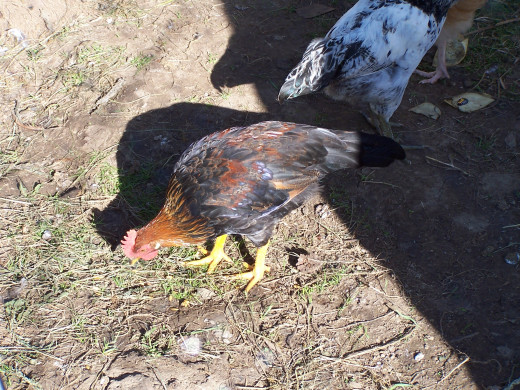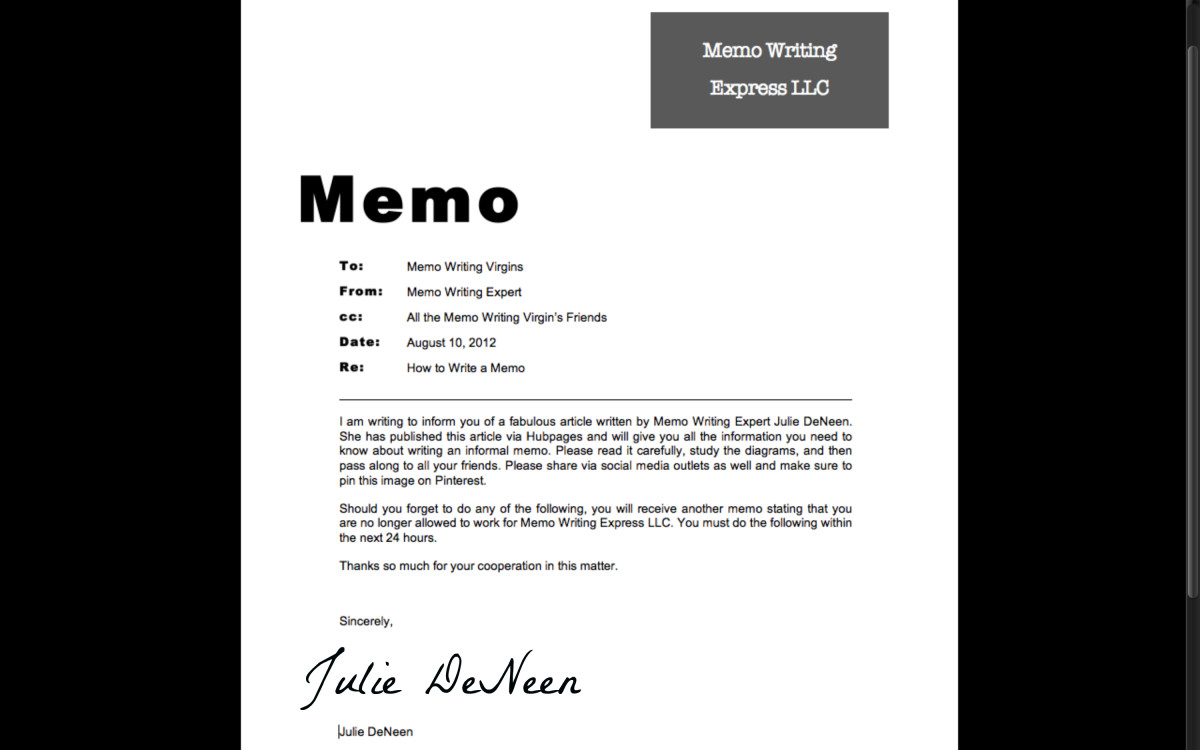The Writer's Mailbag: Installment Forty-Eight
One More Time
Welcome back to the interaction series where you ask questions and I make up answers in an attempt to cover my rear end.
I’m being pushed to the limit this week with some really quality questions. Hopefully I’ll rise to the challenge and come up with something that, at the very least, makes sense. I probably should have saved a couple for next week because this is a big mailbag.
Let’s get started with the first of two questions from Zulma.

Women’s Lit and Flash Fiction
From Zulma: “Thank you, Sensei. But before you do that, here's a question. What is 'women's literature'? And while I think of it. What, exactly, is flash fiction?”
Anyone who has ever queried an agent or publisher is familiar with the different genres of literature. It’s necessary to know the genre your book fits into because, well, inquiring minds want to know.
Women’s Lit is usually referred to as women’s fiction in the genre categories. It does not refer to novels written by women, although most are, but rather about novels that are written that focus on women’s life experiences and the unique emotions associated with those experiences. It is in recognition of the fact that the majority of book readers are women, and it acknowledges that fact by establishing a genre specifically for books aimed at women readers.
Flash fiction is another new term for a genre that has been around for quite some time. Think about Aesop’s Fables and you’ll be thinking about flash fiction, which is fictional literature of extreme brevity. Walt Whitman was known to kick out a flash fiction or two in his time. There is no specific number of words that make up a flash fiction writing. Some describe flash fiction as three-hundred words or less. Some put the ceiling at one-thousand.
Zulma, I hope that clears things up for you. Thanks for the great question.

Converting Real Life to Fiction
From Ann: How about this one? If you see an interesting situation in real life, how do you convert it to fiction? Do you 'steer' circumstances to suit the story or keep to what actually happened, and why?
Since Ann asked what I do, that’s basically what you’re going to get with this answer.
I’m first and foremost a writer of fiction. For me, life is one big writing prompt. I’ll see a commercial on television and it will trigger something. I’ll hear a song and a story is born. With regards to real life occurrences, I usually just use them as the spark that gives birth to a story, or I’ll use them as a scene or action in a novel. My novels are sprinkled liberally with events that “mostly happened” in my life.
The only true story I have ever written that I kept almost entirely intact was a story called “Sam’s Story” about an old couple I lived next door to growing up. It was a recounting of how they met and the sixty years they spent together, and how that couple affected me. I wrote it like fiction and yes, a couple things were the product of my imagination, but mostly the story was true.
PRIORITIES
From Brian: The priorities question shows one of the values of deadlines. If a teacher, producer, publisher or agent is expecting a promised second draft by tomorrow morning, that's a clue as to priority and focus. Any tips on how those of us without such real deadlines can emulate having them? About the closest I come is having thoughts like, "I should contribute a story to the writing group for a change." Do you challenge yourself with writing progress deadlines, such as to show your wife at least one revised chapter of your current novel in progress every Friday evening or whatever?
Brian, this is a great question for which I do not have a great answer, but I appreciate the question nonetheless.
I’ve always been a very focused person. I’m somewhat anal when it comes to time and always have been. I’m always early; never late. I have always been a calendar person, a schedule person, an organized person. This is as natural to me as breathing. It was very noticeable when I was a teacher, a job that requires one to balance many plates at once and never be late with deadlines. I thrived in that situation. I am the ultimate multi-tasker.
But, there are those out there who are not, and my wife is one of them. We balance each other perfectly. I have tried to help her and failed miserably in my attempt. I think, if I had that problem, I would carry an appointment calendar around with me constantly. I would challenge myself with deadlines weekly, and I would insist that I met those deadlines. I really don’t know what else to tell you on this one because it is such a foreign concept for me.
I did do some research on this question, however, and these tips were fairly consistent.
- Make the goal and deadline realistic
- Break the task down into small steps and schedule a completion date for each step
- Reward yourself for meeting the deadline
I’m not sure how much help that is but there you go.

Knowing Your Characters
From Zulma: Got another one. How do you get to know your characters? Do you draw from life? Do you have a vague notion about them and just let it slow cook till you have a fully developed character? Do the characters tell you about themselves while you take notes? I'm curious how you do come up with the beings who people your novels.
Zulma, this really is a marvelous question, or as the British say, brilliant! I think the answer will change depending on the person giving it, but you asked for my opinion so here you go.
I think most fictional characters, if not all, are a compilation of people we have known during our lifetime. I pick and choose certain characteristics from folks I have known. In addition, I usually start with a vague notion of who I want my main character to be, and then I leave it alone for awhile and let it tumble around in my brain. Sooner or later a clear picture of that character comes to me.
On rare occasions a character will develop while I’m writing the book. It’s like they are screaming to me to let them be themselves and quit shackling them, so eventually I turn them loose and let them be who they really are. This is happening now in the second book of a series I’m writing. One of my main characters has grown greatly from Book One to Book Two…she demanded it of me.
Does that make sense?

Describing Noises
From Faith: Speaking of a dumb question, I may have one for you, and it may not be worthy of the next Monday Mailbag LOL ... when writing a noise or sound, is it better to come up with a word to describe the sound or noise, or to describe it in comparison with something so all will have the idea of the sound in their head? For example, "Eeeks"... is that fine? Or would it be better if we described the sound, i.e., "When Susie saw the terrifying reflection in her rearview mirror, she let out a high-pitched scream as if she had just stepped on a mouse." Hopefully, you understand what I am trying to express here, maybe? Well, maybe the question topic should be ...How to express yourself in a concise manner. Haha
Faith, this just happens to be one of my pet peeves, so thanks for bringing it up.
I become almost incensed when I’m reading a book and an author mentions a loud sound by writing “BANG.” Especially if they put it in caps, like that makes it louder to the reader. LOL Talk about lazy writing! “EEEEK” is another example. It’s just pure laziness as far as I’m concerned. I like to use similes to compare the sound to something else the reader will recognize, just like the example you gave of stepping on a mouse. Messy, stepping on that mouse, but highly effective. J
My favorite, he said gritting his teeth….BOOM!
SCAMMERS?
From Carol: Anyway I hope this is okay to ask a question for the mail box...What do you think of all these people who promise you for a small fee to be in all the search engines, emails, social media...which would reach millions of people? I have been asking for testimonials and none have appeared.
A small fee, Carol? If you can find someone who can deliver on that promise for a “small fee” I say go for it.
Seriously, the world is full of scammers. I have no doubt that there are companies who can deliver on that promise and maybe that would be an effective use of your advertising budget, but how do you know which company is for real and which is just scamming you? I don’t know? Does anyone?
Do some more research on that. Ask around. Go on writing forums and see if anyone has an informed opinion. I’ve never used one of those companies and I never will, but I don’t want my skepticism to discourage you.
More Next Week
We went over the limit this week and that means the Mailbag is still healthy and appreciated, so thank you to all who asked questions and thank you to those of you who showed up to read.
Until next week, have a fantastic week of writing, living and loving.
2015 William D. Holland (aka billybuc)
“Helping writers to spread their wings and fly.”











